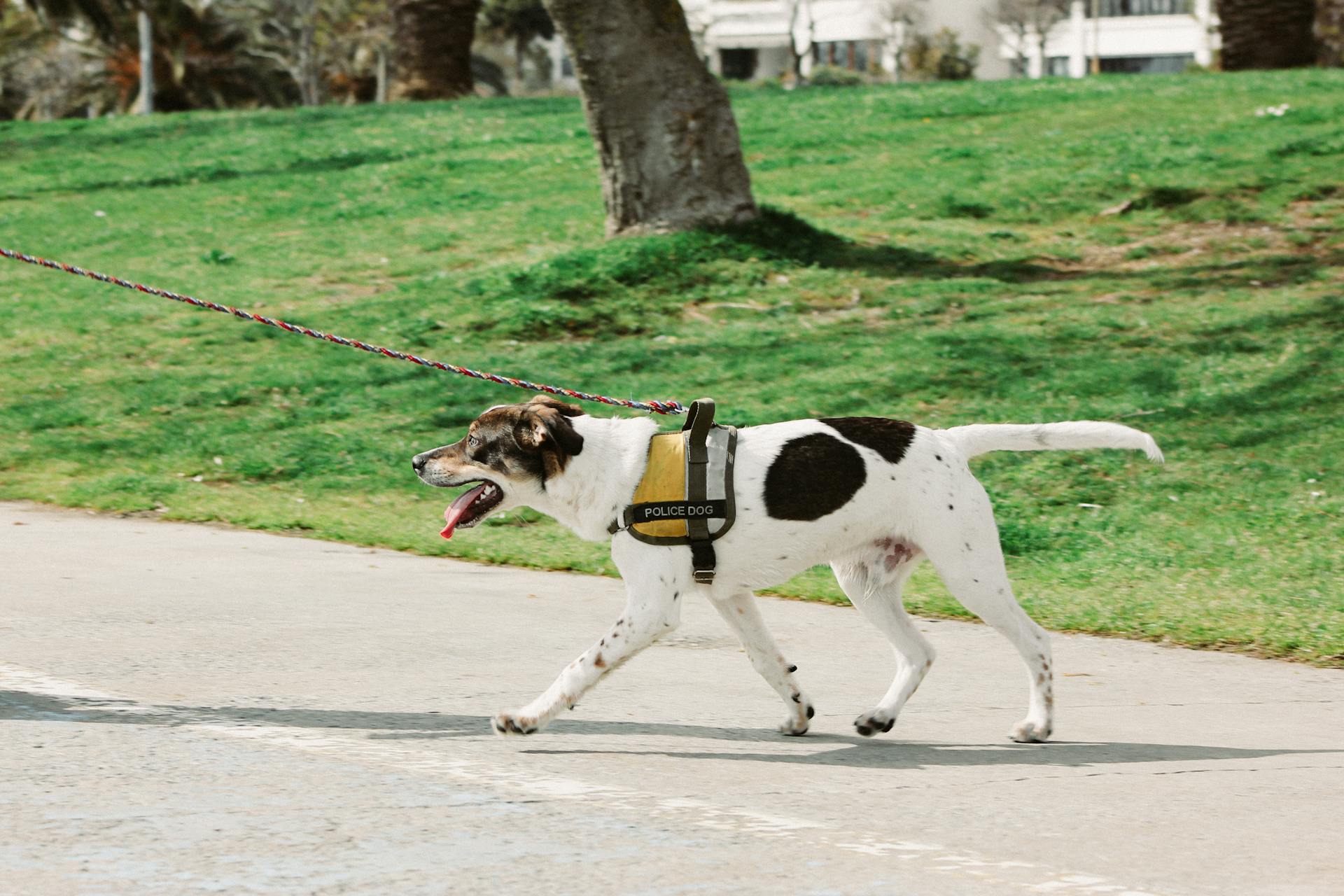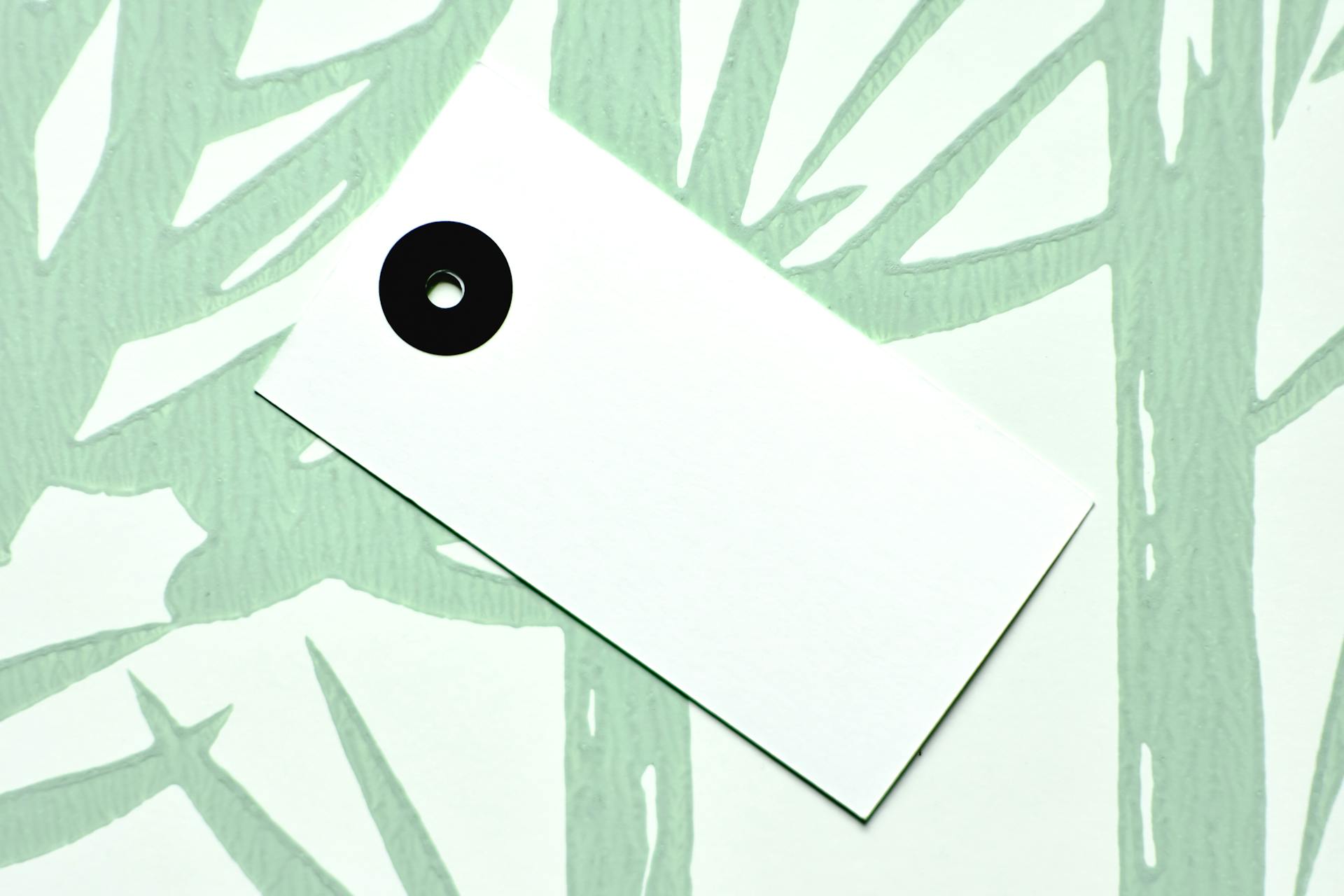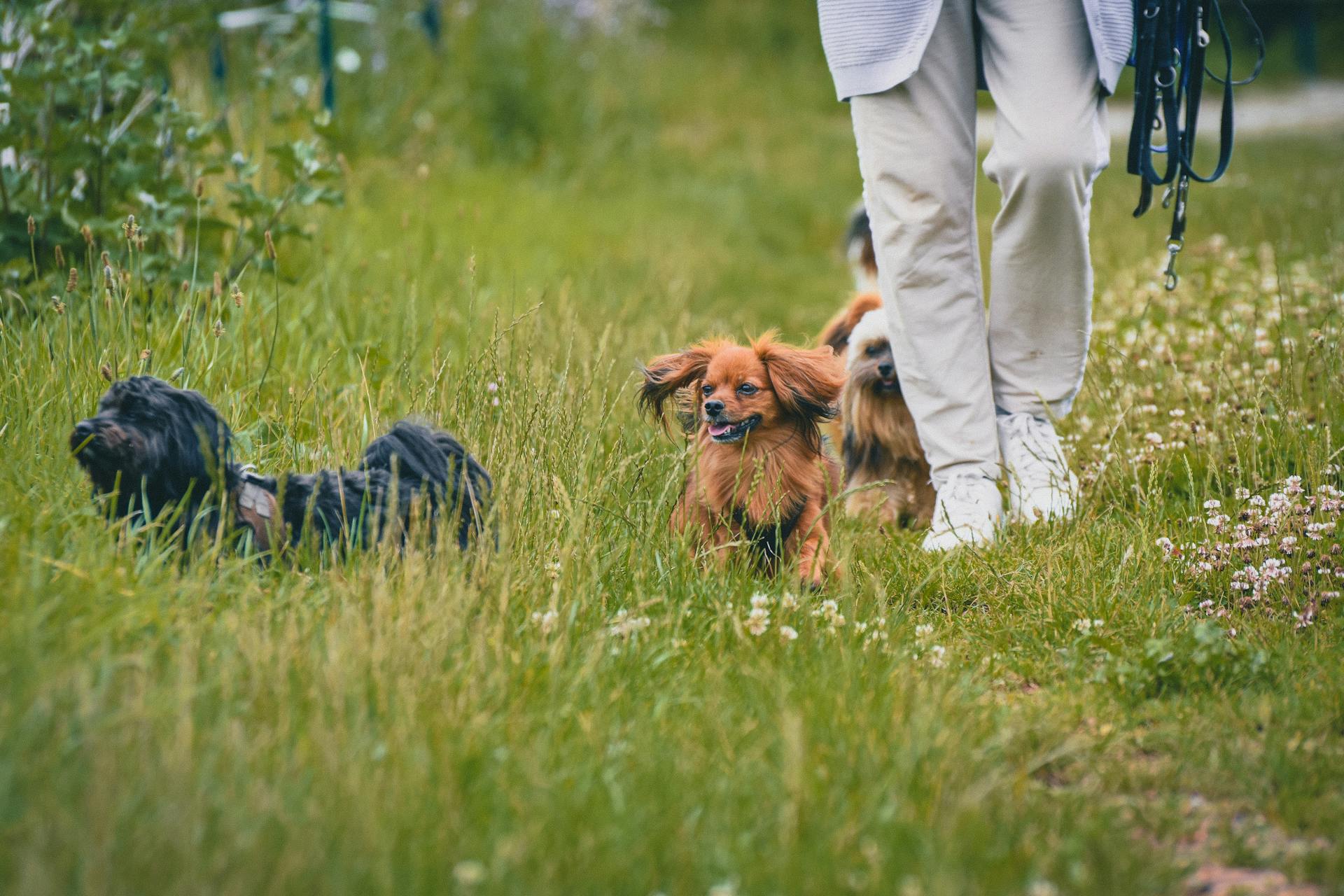
Dogs snap at the air for a variety of reasons, and it's essential to identify the cause to address the issue effectively.
One possible cause is anxiety or stress, which can trigger a dog to snap at the air due to pent-up energy or frustration.
Some dogs may snap at the air due to excitement or overstimulation, such as during playtime or when meeting new people or animals.
This behavior can also be a sign of underlying medical issues, such as pain or discomfort, which may cause a dog to flinch or snap at the air.
Behavioral Issues
Dogs that snap at the air may be exhibiting compulsive behavior, which can be a sign of underlying issues. In some cases, air chomping can be a symptom of obsessive-compulsive disorders or neurological problems.
Seizures, such as idiopathic epilepsy, can cause air chomping motions during seizure activity or the aura phase preceding a seizure. Collapsing or muscle spasms may also be present.
Stereotypic behavior, including repetitive movements and habits, can be caused by anxiety, obsessive-compulsive disorder, or other behavioral issues. This can manifest as air chomping, as well as other behaviors like tail chasing or pacing.
Tremors, often caused by diseases like distemper or renal disease, can also manifest as jaw quivering that appears like air chomping. Other bodily tremors are usually present in these cases.
Tics, such as idiopathic head tremors, can cause involuntary muscle spasms and repetitive chomping motions, especially when accompanied by head shaking.
If your dog's air chomping seems frequent and compulsive, a full veterinary workup is recommended to check for underlying conditions or brain abnormalities.
Here are some possible underlying causes of air chomping in dogs:
- Obsessive-compulsive disorders
- Neurological problems
- Seizures
- Stereotypic behavior
- Tremors
- Tics
If you suspect that your dog's air chomping is a sign of an underlying issue, it's essential to schedule an exam with your vet to identify the trigger and proper treatment.
Teething and Oral Issues
Most puppies outgrow minor air chomping as their teething pain subsides around 6-7 months old. Providing chew toys can help redirect chomping away from the air.
A sore or loose tooth is a common reason for air licking, often accompanied by bad breath, excessive drooling, and eating problems. Your vet can help determine the cause and provide guidance.
Regular oral checkups at the vet can help prevent air licking caused by oral issues.
Intriguing read: Vets Dog Treats
Teething Puppy: Will It Stop?
Most puppies do outgrow minor air chomping as their teething pain and irritation subsides around 6-7 months old.
Providing chew toys helps redirect chomping away from the air, which can be a lifesaver for your furniture and shoes.
If it persists beyond teething, seek your vet's advice to rule out any underlying issues.
Something Is Stuck
Dogs can get into all sorts of trouble with their mouths, and something stuck in there can be a real problem.
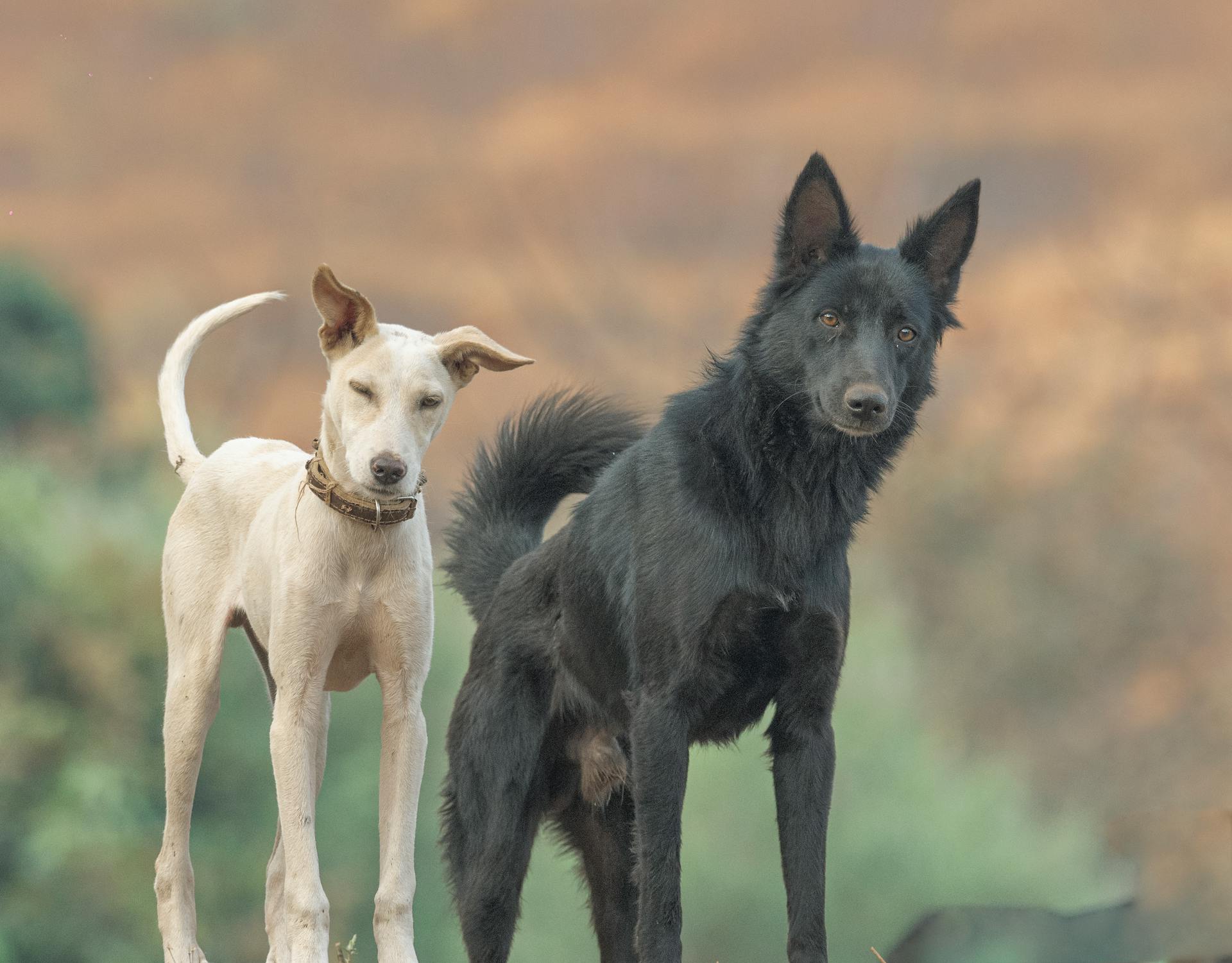
Getting objects stuck in their mouths or paws is a common issue for dogs, and it's not just about eating things they shouldn't.
This can cause them to lick at the air in an attempt to dislodge the object, which can be quite amusing to watch.
If you suspect your dog is trying to remove a foreign object, take a closer look to see if you can spot it.
You can try to carefully remove the object yourself, and the licking should stop once it's out.
Health and Safety
Sudden onset of air chomping can have several causes, including dental problems like fractured or infected teeth.
Frequent air chomping all day long is not typical behavior in healthy dogs.
If you notice your dog air chomping, schedule an exam with your vet to identify the underlying trigger and proper treatment.
When to See the Vet
If your dog starts exhibiting unusual behavior like air licking or air chomping, it's essential to assess the context and consider whether it's a harmless quirk or a sign of a deeper issue.
Sudden and intense air chomping, especially in puppies under 6 months, could be a sign of oral pain from teething.
Prolonged air chomping that persists for days or weeks on end might be a sign of an underlying medical or behavioral issue.
If your dog is air licking or chomping compulsively many times per day, it's worth investigating further.
Air chomping that's accompanied by additional symptoms like drooling, lethargy, or loss of appetite is a clear sign that your dog needs veterinary attention.
Interfering with normal activities like eating is another red flag that warrants a vet visit.
Here's a list of situations that require a veterinary visit:
- Sudden and intense air chomping
- Prolonged air chomping (days or weeks)
- Compulsive air chomping (many times per day)
- Air chomping accompanied by drooling, lethargy, or loss of appetite
- Air chomping interfering with normal activities like eating
Your veterinarian can perform a full oral exam, including dental x-rays, to identify any underlying issues.
Nausea
Dogs often get into things that they shouldn’t, and many times will eat something that simply doesn’t agree with them.
If your dog is licking air and eating grass, it could be a sign that they're feeling nauseated, usually followed by a bout of vomiting.
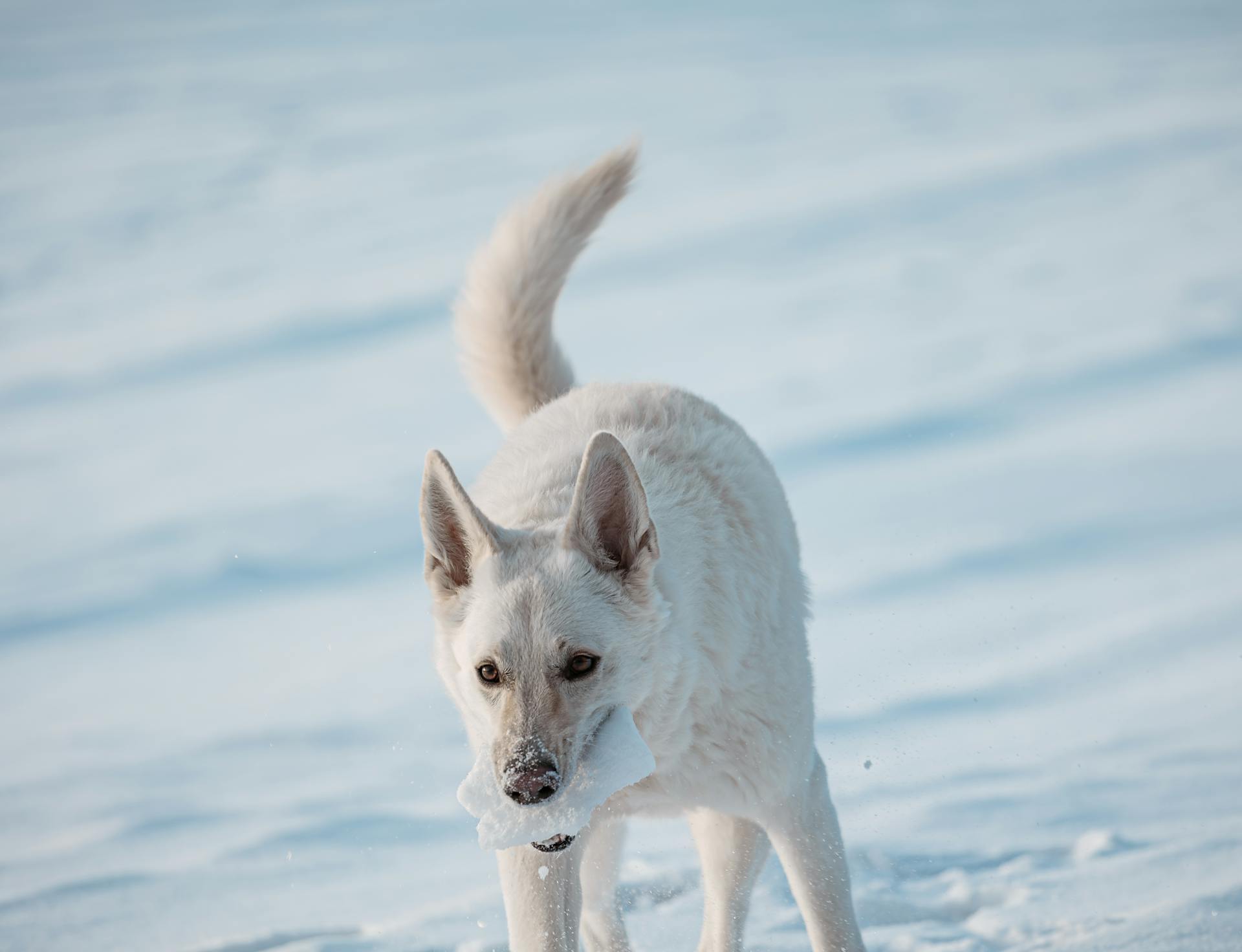
Eating grass to induce vomiting is a common cause of nausea in dogs, and it's not uncommon for them to try this trick.
Motion sickness from car rides to the vet is another common cause of nausea in dogs, making those trips to the vet a bit more stressful for everyone involved.
Exercise and Training
Regular exercise is essential to redirect your dog's energy and reduce air chomping behaviors. Taking your dog on long walks can help them expend excess energy.
Bored dogs are more likely to develop repetitive air chomping behaviors. Providing interactive puzzle toys can stimulate their mind and reduce chomping urges.
Play games of fetch with your dog to engage their physical and mental abilities. This can help redirect their energy and reduce air chomping behaviors.
Understanding Dog Behavior
Dogs can chomp the air for a variety of reasons, including dental problems and anxiety. Dental issues like fractured or infected teeth can cause sudden onset air chomping.
Some dogs may exhibit compulsive chewing behavior due to obsessive-compulsive disorders or neurological problems. These conditions can result in repetitive, compulsive motions like air chomping.
Seizures, idiopathic epilepsy, and other neurological disorders can cause air chomping motions during seizure activity or the aura phase preceding a seizure. You may also see other signs like collapsing or muscle spasms.
Tremors caused by diseases like distemper, renal disease, and neurological disorders can manifest as jaw quivering, resembling air chomping. Other bodily tremors are usually present in these cases.
Stress and anxiety can also trigger air chomping in dogs. Loud noises, new pets or people in the home, and changes to their routine can cause distress.
Common sources of stress for dogs include new pets or people, loud noises like fireworks, and changes to their routine. Consistency is key to helping your dog develop a calm demeanor.
Here are some potential causes of air chomping in dogs:
- Dental problems like fractured or infected teeth
- Anxiety or stress caused by loud noises, new pets or people, or changes to their routine
- Neurological issues like seizures, idiopathic epilepsy, or tremors
- Compulsive behavior problems like obsessive-compulsive disorders
If you notice your dog exhibiting persistent air chomping behavior, it's essential to schedule a veterinary exam to identify the underlying trigger and proper treatment.
Frequently Asked Questions
How do you treat fly snapping syndrome in dogs?
Fly snapping syndrome in dogs is typically managed with anti-epileptic medications, such as phenobarbital, zonisamide, potassium bromide, and levetiracetam, which are also used to treat seizures. Consult with a veterinarian to determine the best course of treatment for your dog.
Sources
- https://www.patriciamcconnell.com/theotherendoftheleash/muzzle-punches-air-snaps-and-tooth-clacking
- https://www.holistapet.com/blogs/dog-care/how-to-stop-a-dog-from-nipping-when-excited
- https://www.patriciamcconnell.com/theotherendoftheleash/muzzle-punches-air-snaps-and-tooth-clacking-2018
- https://www.cdhp.org/why-does-my-dog-chomp-his-teeth-in-the-air/
- https://petcube.com/blog/dog-licking-air/
Featured Images: pexels.com
